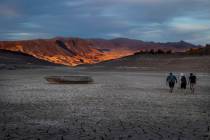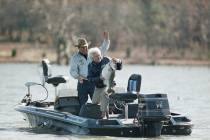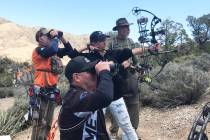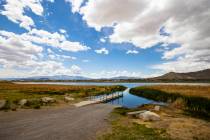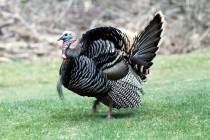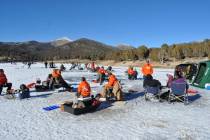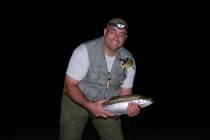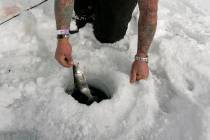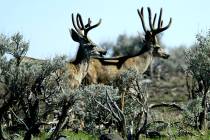Scouting trip, binoculars should lead to successful hunt
Preseason scouting always has been an important part of the hunt preparation process, especially when it comes to hunting big game such as Nevada’s mule deer. Anyone who has spent at least one season in the field will understand that, even if they haven’t taken the opportunity to go scouting themselves. Nothing can replace time spent on the ground. Not even satellite imagery.
Unfortunately, based upon my conversations with other hunters, the high price of fuel is making the cost of taking a scouting trip so high that many aren’t making that extra trek. That way, they can afford to go hunting when the season opens. Such was the case with me until my friend, Gary Pratt, called and invited me to join him and Robert Thompson on a scouting trip to central Nevada.
Since Gary’s granddaughter and Robert’s son have tags in the same unit as my children, it made sense to take advantage of the invitation to join their outdoor carpool. Going with them also gave me the chance to learn from someone who knows a lot about the particular unit the kids will be hunting, because Gary and Robert have hunted there many times.
In addition to gleaning knowledge from someone who has been around as long as Gary, the trip also would provide the perfect venue for field-testing a set of binoculars marketed by Christensen Optics, a local company owned by Chad Christensen. Both are in the popular 10×42 configuration, nitrogen charged and waterproof, though one model is more compact than the other.
Our trip north took us past a large ranch, where our leisurely trip was interrupted by an abrupt reminder that Gary has a reputation for making sudden stops whenever he sees a deer, elk or other game animal.
“There’s a huge bull, Doug. Do you see it? It’s right there just beyond that shed.”
I could hear Gary talking, but it wasn’t until I peeled my face off the back of Robert’s seat that I could see daylight, let alone the elk.
I dug the binoculars from my gear bag and began looking for the bull. He wasn’t hard to find because his heavy-beamed antlers, stained dark by the ritual thrashing of young trees, stood out in stark contrast to the light brown backdrop of the field in which he stood. With him were numerous yearling bulls and probably 200 cows, all feeding no more than 300 yards off the highway.
After gathering our composure, we continued north, reaching our destination with plenty of daylight left to look for deer. That evening, we counted several small bucks as they made their way from stands of juniper trees and pinyon pines at the base of the mountains toward an agricultural area in the valley below. Though we each had our own binoculars, I couldn’t help but notice that we grew increasingly dependent on the Christensen binoculars as daylight faded, and Gary said as much. Not only were they as clear as the more expensive optics we had with us, but their ability to gather light in low-light conditions was better.
The next morning, we were up before dawn and put in a full day. What we found made us optimistic for our kids’ chances of putting their tags on a Nevada mulie. We didn’t see deer by the hundreds, but what we did see was enough to still the heart of the most seasoned hunter. In one group, we counted seven bucks, two of which were bucks of a lifetime. Even at a distance, we could see the lead buck had antlers almost as tall as they were wide, stretching well past his ears. With him was another buck that was close to the same size. What Nevada doesn’t have in numbers it definitely has in quality. I think tag-holders who put in the effort stand an excellent chance of seeing a good buck this year.
The Christensen binoculars performed well, and we gave them a workout. They are clear, focus easily and include adjustable eyecups. Though they were impressed with the optics’ clarity, some wildlife biologists and hunters I have asked to try them out expressed concern about the quality of a new product. That’s something only time can determine. Both models sell for less than $300.
Doug Nielsen is an award-winning freelance writer and a conservation educator for the Nevada Department of Wildlife. His “In the Outdoors” column is published Thursday. He can be reached at doug@takinitoutside.com.



